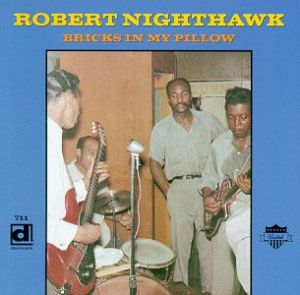
- Format: FLAC

This 14-song collection, consisting of tracks recorded on July 12, 1951, and October 25, 1952, completely transforms the landscape where Robert Nighthawk's music is concerned. Up to now, apart from seeking out his prewar, unamplified work as Robert Lee McCoy (or McCullum) on Bluebird or grabbing a few tracks from some Chess reissues, there hasn't been a lot of Robert Nighthawk in one place. Now there are 14 hard-rocking tracks, cut for United Records in Chicago and showing Nighthawk in his prime and loving it, playing a mean slide underneath some boldly provocative singing that could have given Muddy Waters a run for his money. The style is there, and the voice and the guitar are there, so why didn't Nighthawk hit it big? Based on this collection, his style with an electric guitar just wasn't as distinctive as Waters' playing; additionally, he just didn't have Waters' (or Chess songwriter Willie Dixon's) way with a catch phrase — there are some OK songs here ("Kansas City," "You Missed a Good Man," "Bricks in My Pillow"), but nothing as catchy or instantly memorable as "I Can't Be Satisfied," "Hoochie Coochie Man," or "Got My Mojo Working." A pair of instrumentals, "Nighthawk Boogie" and "U/S Boogie," both driven by Nighthawk's guitar and a romping piano, pretty much make this collection worthwhile and show the man in his peak form. Included on this collection are a pair of previously unissued tracks, an alternate take of "Seventy-Four," and a loud, crunchy, but, alas, unfinished version of "The Moon Is Rising." The sound is surprisingly clean and rich, especially given the 1951-1952 origins of the tapes.